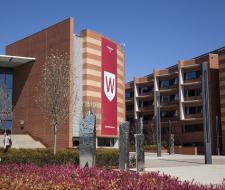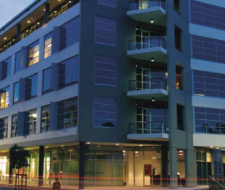University preparation in Australia for international students
This content was developed and approved with active participation of Sam Jones, who is a Director of the International School of Bremen
In the process of preparing the material, we referenced the following sources:
- https://en.wikipedia.org/wiki/Tertiary_education_in_Australia
- https://www.bupa.com.au/health-insurance/oshc/members-help-guide/10-reasons-students-choose-australia-to-study
-
 from 23000.00 $AUD / year
from 23000.00 $AUD / year -
 #1 best university in Business Faculties in Australia
#1 best university in Business Faculties in Australia AustraliaSydneyCurrently watching: 5from 15188.00 $AUD / 37 weeks
AustraliaSydneyCurrently watching: 5from 15188.00 $AUD / 37 weeks -

-
 #1 of Design and Architecture in Australia
#1 of Design and Architecture in Australia AustraliaGold CoastCurrently watching: 6from 24000.00 $AUD / year
AustraliaGold CoastCurrently watching: 6from 24000.00 $AUD / year -

-
 from 22302.00 $AUD / year
from 22302.00 $AUD / year -
 top 2% of universities worldwide
top 2% of universities worldwide AustraliaBrisbaneCurrently watching: 4from 23000.00 $AUD / 2 terms
AustraliaBrisbaneCurrently watching: 4from 23000.00 $AUD / 2 terms -
 ranked #62 in Best Global Universities
ranked #62 in Best Global Universities AustraliaCanberraCurrently watching: 3from 31500.00 $AUD / year
AustraliaCanberraCurrently watching: 3from 31500.00 $AUD / year -
 from 38800.00 $AUD / year
from 38800.00 $AUD / year -
 from 28800.00 $AUD / year
from 28800.00 $AUD / year
Nowadays, Australia is chosen by many foreign students due to a wide range of high-quality educational services. SMAPSE offers 10 best colleges and schools in Australia where foreign students can get preparation courses that will help to enter prestigious universities in Australia and abroad. Due to the list of TOP-10 colleges and schools in Australia, you will definitely find the most appropriate option.
Alternative destinations
What you should know about Preparing for University in Australia
Embarking on a journey toward higher education in Australia marks the beginning of a promising career. The southern continent boasts some of the world's finest universities, supported by generous government funding of nearly 3 million Australian dollars annually. This financial backing fuels innovative teaching methods and ensures a rigorous standard of education. The result? Over a decade of consistent representation by at least six Australian universities in the prestigious TOP-100 global rankings.
Globally Recognized Credentials:
Diplomas conferred by Australian universities hold international prestige, with major corporations eagerly recruiting graduates from these institutions. Remarkably, students can begin professional work as early as their second or third year at university, often juggling work commitments alongside their studies.
Preparing for University Entry:
So, you've set your sights on entering an Australian university. How do you prepare for the admissions process? Firstly, it's crucial to assess your English proficiency level. All Australian universities require evidence of competence in English through certificates obtained from recognized international exams:
-
TOEFL. The minimum passing score is 78. Its validity is 2 years.
-
IELTS. The minimum score for admission is 6.0. It is also valid for 2 years.
-
CAE (Cambridge Advanced English) is another language certificate that all universities in Australia accept. It is cheaper and valid for a lifetime (unlike TOEFL and EILTS), but not all European countries recognize it. If you plan to stay on the southern continent, then CAE is the best option.
Once you've secured your language proficiency certificate, the next step is to select courses in other subjects or acquire them after completing your secondary education in Australia.

What firstly should be considered when choosing a university?
It depends on the student - everyone determines the most important criteria for himself. I would advise you to take several rankings and compare them with each other, plus take into account the cost of the course, the location of the university and its scale, the percentage of graduates' employment. See where graduates continue their studies or where they go to work.
Admission requirements to Australian Universities
To qualify for admission to Australian universities, you must meet the following requirements:
-
Secondary Education Diploma: Australian students undergo 12 years of schooling. Therefore, applicants must possess a high school diploma along with a certificate from either the first year of university or preparatory courses in Australia.
-
Letter of Recommendation: A recommendation letter from your most recent employer or educational institution is essential. The university's selection committee may provide a sample letter upon request.
-
Motivation Letter: While not always mandatory, a well-crafted motivation letter can significantly boost your chances of admission or even make you eligible for scholarships. This letter is typically composed in a free-form style, where you articulate why you wish to attend university. Your reasons could range from enjoying the living conditions to aspiring to work in a specific field or fluently speaking English.
Opportunities for Free Study in Australian Universities
Every international student has the opportunity to study at an Australian university for free, and in some cases, even receive scholarships. The government offers a state program known as the Endeavor Scholarships and Fellowships for outstanding students. To qualify for free study, you'll need:
-
Outstanding academic performance with top scores in all tests.
-
Submission of a formal scholarship application (typically after the first year of university).
-
Successful competition against fellow applicants for a spot in the program.
Seize the opportunity to unlock your potential through higher education in Australia, where excellence knows no bounds. Your journey to academic success begins here.
Universities Preparation courses for foreign students in Australia
|
Name, location |
Cost |
Description of programs |
Duration |
|
University Preparation College, Bankstown, Sarry Hills (New South Wales) |
365-5000AUD / course |
Intermediate to Advanced (Upper-Intermediate to Advanced) Studying the specifics of university studies:
Preparing for IELTS |
10-20 weeks. |
|
Language Studies International, Brisbane |
from 485AUD / week |
|
7days-4 months - TOEFL, IELTS 10 weeks. |
|
Language Links Education, Perth |
1223AUD / wk |
|
4-52 weeks. |
|
Taylors College Melbourne |
from 495AUD / week |
International foundation Preparation for admission to universities. College Standard Technological, exact, humanitarian sciences. One item of choice:
16 lessons / week TOEFL, IELTS Courses (TOEFL, IELTS Exam Preparation Courses) Programs developed in conjunction with Monash University, Deaking University |
from 14 days. |
|
Kaplan international colleges (Sydney, Melbourne, Perth, Brisbane, Cairns, Adelaide) |
from 1743/2 weeks. |
|
IELTS - from 14 days CAE, FCE - 3 months. |
Each of the schools / universities listed in the review offers dozens of courses, and programs with a narrow theme (in a particular specialty). Qualified teachers prepare students for exams, tests, identify weaknesses. After a year of study in the courses, taking notes at the university will not cause any particular difficulties. Communication with teachers and classmates will become comfortable, the assimilation of materials in English is effective.
At what age can I go to university in Australia?
In Australia there is no age limit for entering university. Most students begin their higher education after graduating from high school, usually between the ages of 18 and 19. However, the country also provides opportunities for adult students, who can enter university after some work experience or through adult training programs. As such, age is not a barrier to higher education in Australia and universities welcome students of all ages.
What documents are needed for admission?
To successfully enroll in an Australian university, you will need certain documents. The most important ones are a high school diploma or equivalent and standardized test scores. For foreign students, it is mandatory to provide results of English language exams such as IELTS or TOEFL. You may also need letters of recommendation and a personal statement outlining your motivation and preparation for the chosen program. These documents play an important role in your admission decision, so it is important to prepare them carefully.
What are the application deadlines?
Application deadlines for Australian universities may vary depending on the individual institution and program chosen. Typically, the main application deadline for the fall semester, which begins in February, ends in July, and the application deadline for the spring semester, which begins in July, ends in November. However, some programs may have different deadlines, so it is recommended to study the information on the official websites of universities in a timely manner and begin the application process in advance in order to have enough time to prepare the necessary documents and go through all stages of admission.
How much does it cost to study at Australian universities?
The cost of studying in Australia can vary significantly depending on the university chosen, the program and your status as a student (local or international). The average cost of studying for international students in Australia is between 20,000 and 45,000 Australian dollars (AUD) per year. However, the cost may be higher for some programs (eg medical). It is also important to consider the additional costs of housing, food, books and other expenses associated with living as a student in Australia.
Can I get financial support?
Yes, many Australian universities provide various forms of financial support for international students. These may include scholarships, grants and financial aid. Before applying for admission, it is worth researching the financial support opportunities offered by a particular university or program. It is also worth looking for external funding sources, such as government or private organizations, that can provide financial support based on the student's merit and need.
Can I work while studying?
Yes, international students have the right to work in Australia while studying. Typically, on a student visa, they can work up to 20 hours a week during their studies and a full week during the holidays. This provides students with the opportunity to earn extra money and gain work experience that can be valuable for a future career. Many universities also provide information about job openings on campus, making it easier to access jobs.
What level of English is required for admission?
To gain admission to an Australian university, international students are usually required to provide results from English language tests such as IELTS or TOEFL. English level requirements may vary from university to university and program to program. However, in general, an IELTS score of 6.0 or an equivalent TOEFL score is required. A high level of English is important not only for successful learning, but also for successful adaptation and interaction in an English-speaking environment.
How long is the bachelor's program?
The duration of a bachelor's program in Australia is usually from 3 to 4 years, depending on the chosen specialty and university. For example, most science and engineering programs typically last 4 years, while arts and humanities programs may last 3 years. It is important to estimate the length of a specific program before applying for admission so that you have an idea of the time it will take to complete your studies.
Can I transfer from a university in another country to Australia?
Yes, many Australian universities welcome international transfer students. If you have already started studying at a university in another country and decide to transfer to an Australian university, you may need to provide academic documents and go through a credit recognition process. Universities typically evaluate your previous academic achievements and determine which courses and grades can be transferred for credit.
Are there student exchange programs in Australia?
Yes, many Australian universities participate in student exchange programs. These programs allow students to spend a period of study in another country, enriching their academic and cultural experience. Exchange programs provide students with a unique opportunity to explore a new academic and cultural environment, broaden their horizons and develop international skills.
Learning programs-summary information
| Name | Meaning | Equivalent | Min. age | Duration, years |
Next stage | Cost |
|---|---|---|---|---|---|---|
| GCSE | General certificate of secondary education | secondary education (non-accomplished) | 14 | 1–2 | A-Levels | 15,000 USD+ |
| A-Levels | Advanced level | secondary education (accomplished) | 16 | 2 | University | 15,000 USD+ |
| BTEC | Business and Technology Education Board | secondary special education | 14 | 2–3 | University/ work | 15,000 USD+ |
| Oxbridge Preparation | Preparing for Oxford and Cambridge | secondary education (accomplished) | 17 | 1 | University | 15,000 USD+ |
| International Baccalaureate | International baccalaureate | secondary education (accomplished) | 16 | 2 | University | 18,000 USD+ |
| Foundation/ Pathway Year | Preparatory year | admission to the 1st year of university | 17 | 1 | University | 14,000 USD+ |
| NCUK | The Northern consortium | 2 year university | 17,5 | 1 | 2 year University of NCUK | 13,000 USD+ |
| Special Preparation (Medics/Math/Business) | Specialized training | - | 14 | optional | optional | 4,000 USD+ |
| Academic English | Academic English | Language school | 8 + | 6–12 months | School or University | 8,000 USD+ |
Top 21 boarding colleges in England 2026
| 1 | Cardiff Sixth Form College |
| 2 | National Mathematics and Science College |
| 3 | Abbey College Cambridge |
| 4 | d'Overbroeck's College |
| 5 | MPW London |
| 6 | CATS Cambridge |
| 7 | Kensington Park |
| 8 | DLD London |
| 9 | King's College St Michael’s |
| 10 | Bellerbys Cambridge |
| 11 | Chelsea Independent College |
| 12 | MPW Cambridge |
| 13 | Bellerbys Brighton |
| 14 | CATS London |
| 15 | St Clare's Oxford |
| 16 | Bishopstrow College |
| 17 | CATS Canterbury |
| 18 | Bellerbys London |
| 19 | Ealing Independent College |
| 20 | Cambridge Tutors College |
| 21 | Abbey Manchester |
Top 35 best universities and colleges in Canada 2026
| 1 | University of Toronto |
| 2 | McGill University |
| 3 | University of British Columbia |
| 4 | University of Alberta |
| 5 | Simon Fraser University |
| 6 | Montreal University |
| 7 | University of Windsor |
| 8 | York University |
| 9 | University of Guelph |
| 10 | McMaster University |
| 11 | University of Manitoba |
| 12 | University of Waterloo |
| 13 | Royal Roads University |
| 14 | Vancouver Film School |
| 15 | Kwantlen Polytechnic University |
| 16 | University of Calgary |
| 17 | Dalhousie University |
| 18 | Fanshawe College |
| 19 | University of Ottawa |
| 20 | Laval University |
| 21 | Sheridan College |
| 22 | University of Regina |
| 23 | Brock University |
| 24 | Thompson Rivers University |
| 25 | Humber College |
| 26 | Vancouver Island University |
| 27 | Mohawk College |
| 28 | Centennial College Toronto |
| 29 | Niagara College |
| 30 | Capilano University |
| 31 | Seneca College |
| 32 | Algoma University |
| 33 | Saint Clair College |
| 34 | Douglas College |
| 35 | LaSalle College |
Statistics of English courses in Australia
| Programs | Intensity | Group | Language requirements | The minimum cost of the week AU$ |
|---|---|---|---|---|
| Standard English | 20 | 6-15 | Beginner | 230 + |
| Intensive courses | 30 | 6-14 | Elementary | 350 + |
| Semi-intensive | 24-25 | 6-14 | Elementary | 304 + |
| English for Business | 25-28 | 6-15 | Low intermediate | 418 + |
| English for Specific Purposes | 25 | 6-15 | Intermediate | 335 + |
| English for Academic Purposes | 28 | 6-15 | Low intermediate | 330 + |
| Exam preparation courses | 20 | 6-15 | Low intermediate | 330 + |
| English in Action | 15-30 | 6-15 | Beginner | 340 + |
| One-to-one lessons | individual | 1 | Beginner | 95 + |
Students Accommodation Options in Australia
| Accomondation | Meals | Number of people per room | Cost per week/min AU$ | Cost per week/max AU$ |
|---|---|---|---|---|
| Homestay | breakfast | 1-2 | 200 | 400 |
| School residence | - | 1-2 | 165 | 350 |
| Appartment | - | 1-2 | 300 | 500 |
| Hotel | optional | 1-2 | 160 | 250 |
